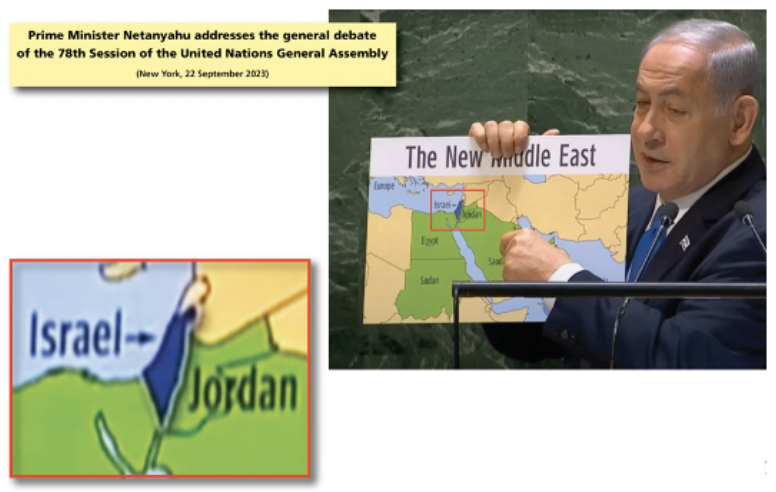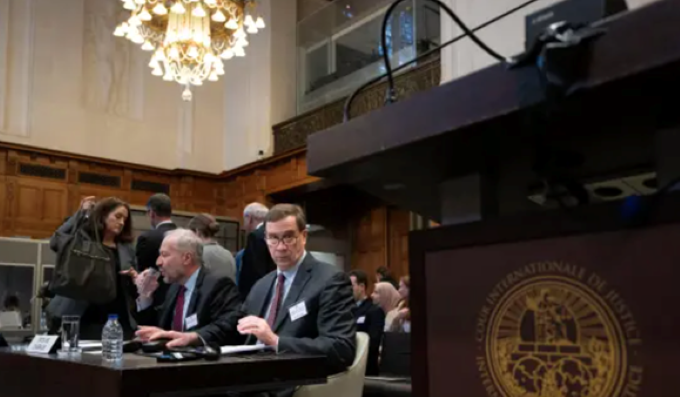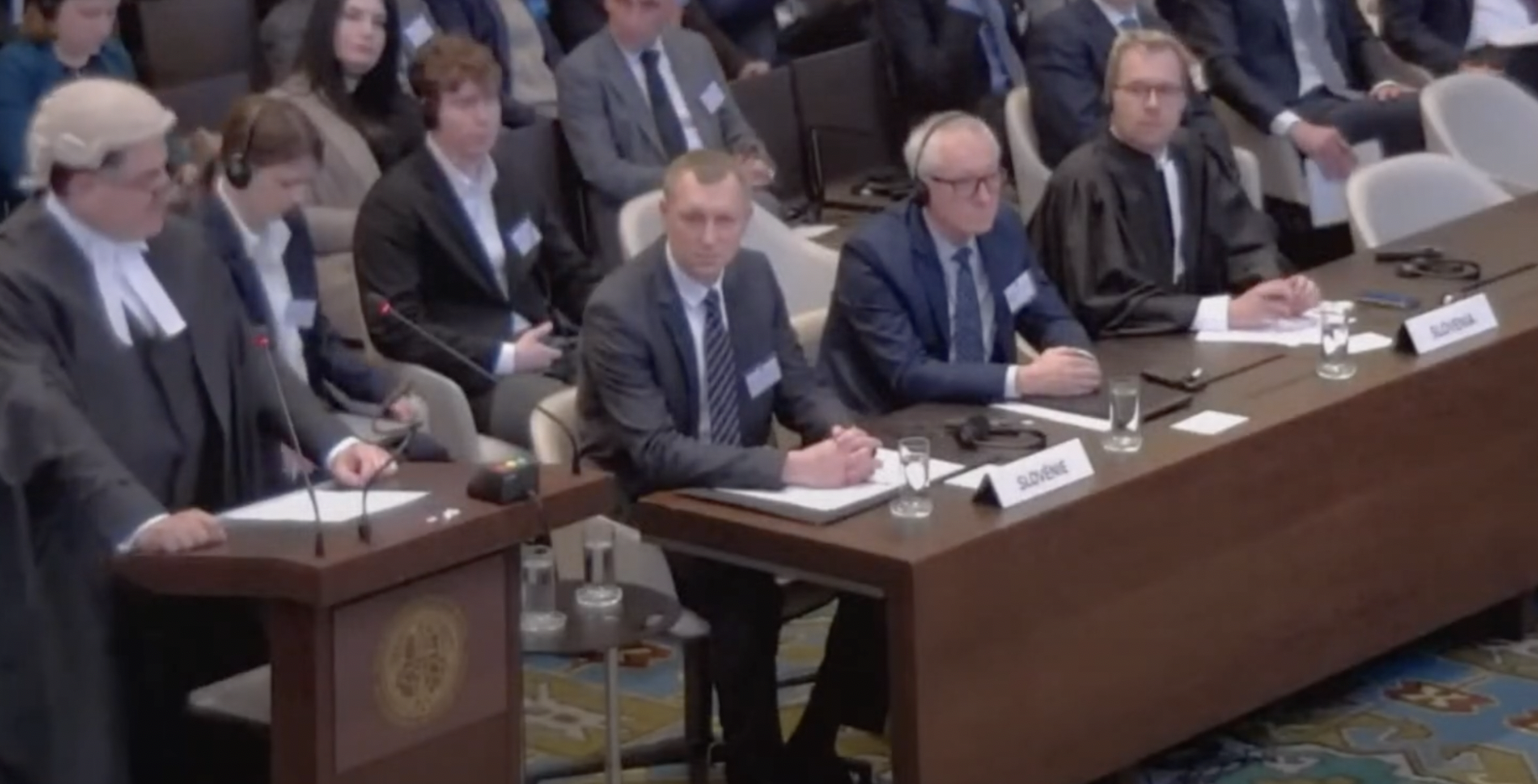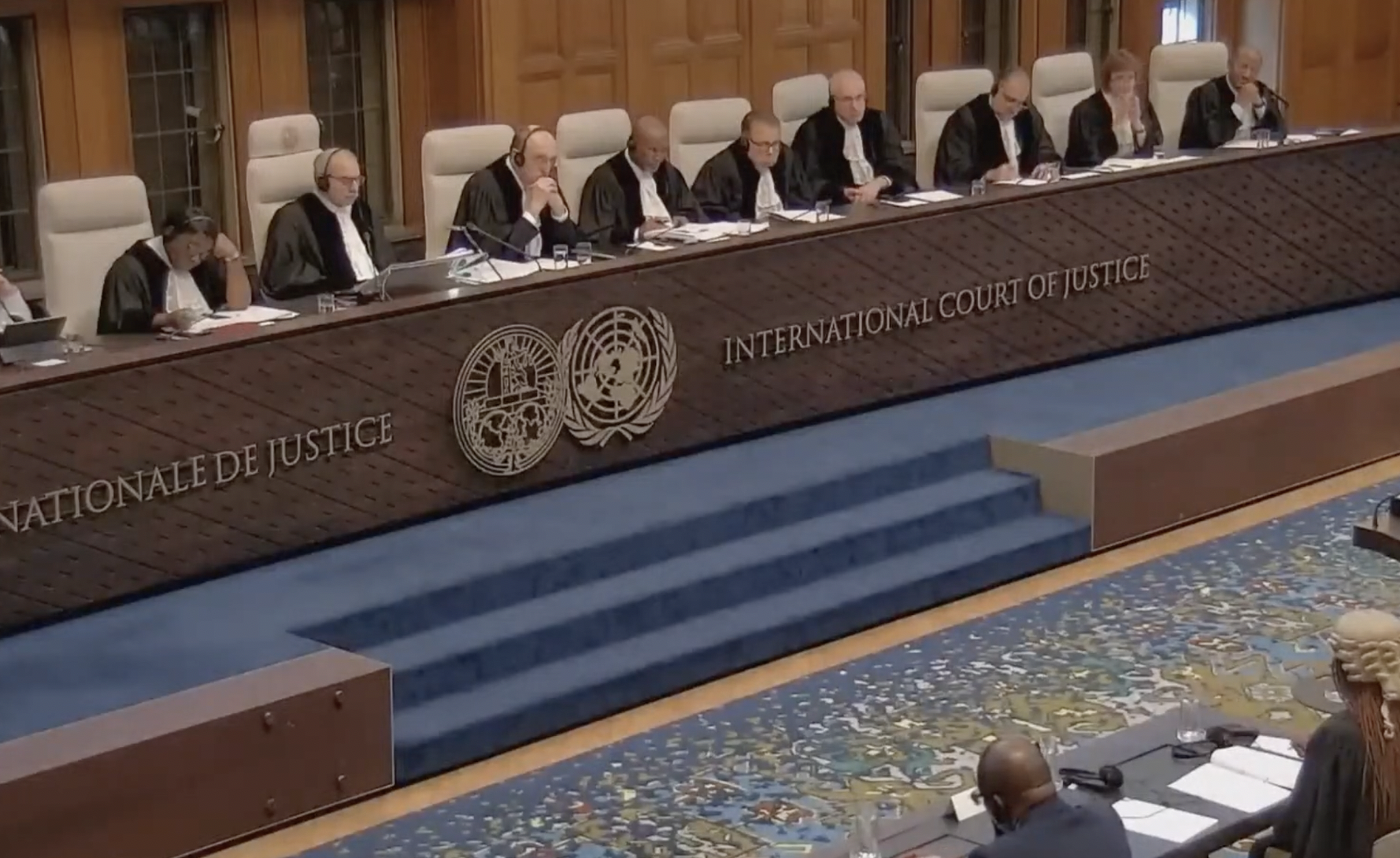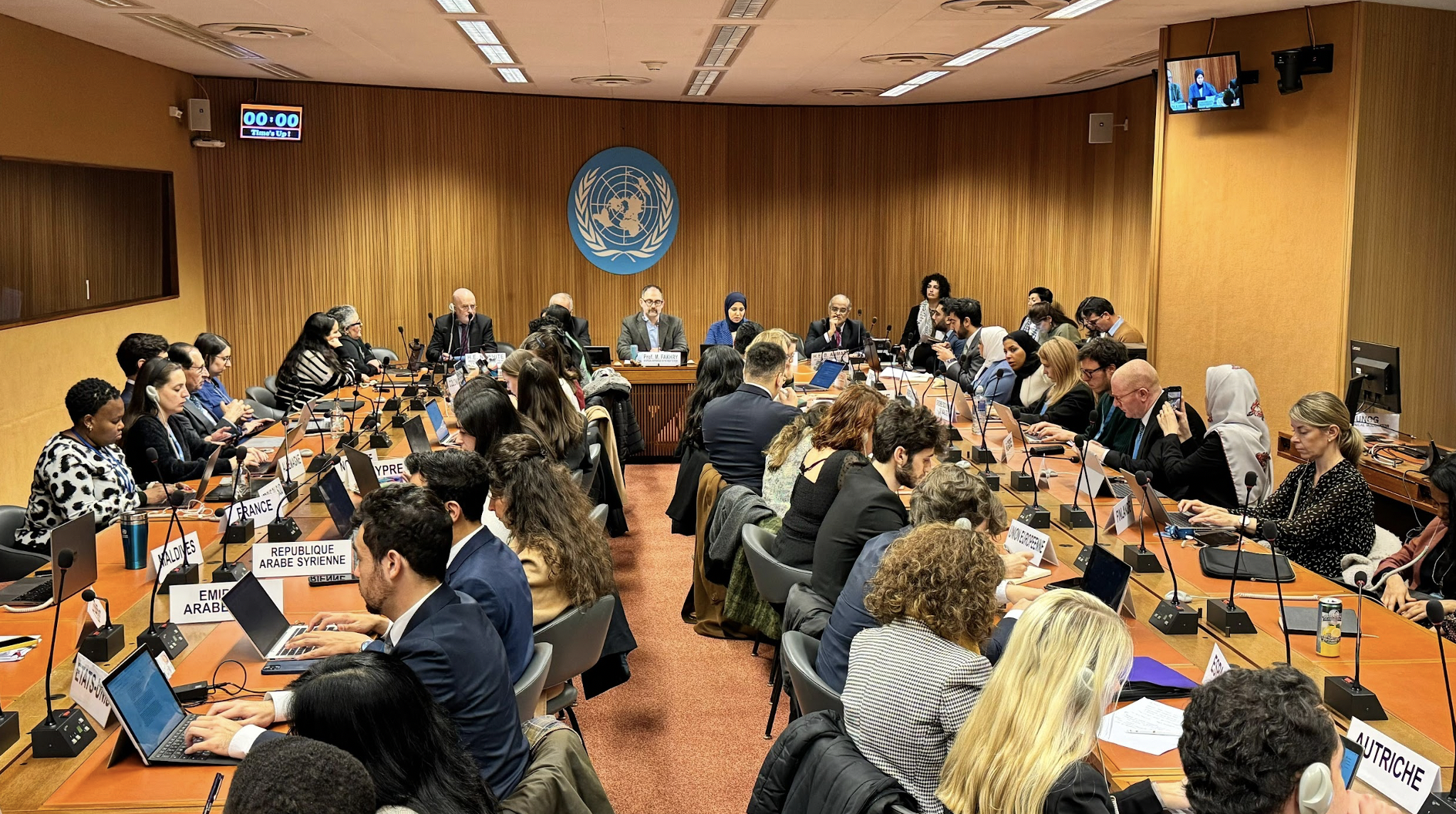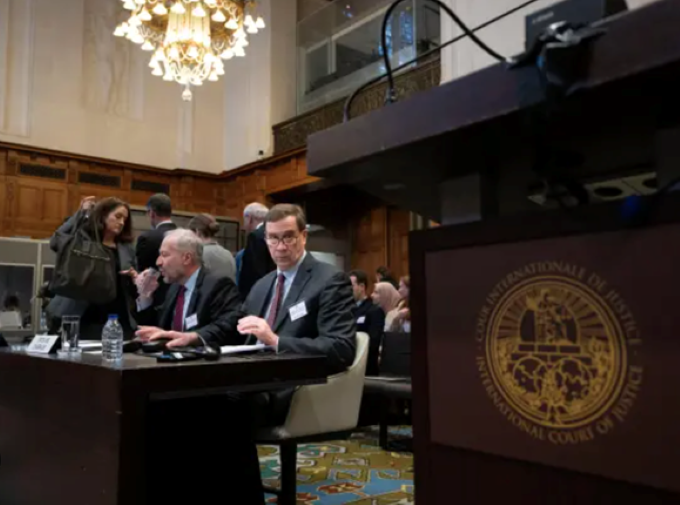
On 21 February 2024, the International Court of Justice (“ICJ” or “the Court”) continued its hearings on the Israeli occupation of Palestine with delegations from the following countries: Colombia, Comoros, Cuba, The Arab Republic of Egypt, United Arab Emirates, United States, Russian Federation, France, The Gambia, Guyana, and Hungary, in response to a request from the United Nations General Assembly (UNGA) regarding issues concerning the occupied Palestinian territory. The ICJ, inter alia, grappled with the following questions:
"(a) What are the legal consequences arising from the ongoing violation by Israel of the right of the Palestinian people to self-determination, from its prolonged occupation, settlement and annexation of the Palestinian territory occupied since 1967, including measures aimed at altering the demographic composition, character and status of the Holy City of Jerusalem, and from its adoption of related discriminatory legislation and measures?” and “(b) How do the policies and practices of Israel referred to in paragraph 18 (a) above affect the legal status of the occupation, and what are the legal consequences that arise for all States and the United Nations from this status?"
Some of the oral statements of note from this hearing include:
The United States
 Another delegation that is important to emphasise is the United States, which disagreed and their disagreement with the timing and validity question of the Court’s advisory opinion. Representative Mr. Richard Visek stated that “this Court’s advisory opinion will have consequences for the parties to the conflict, and for the ongoing efforts of all of those working to achieve a durable peace.” The United States urged the Court to ensure that its opinion respects the established framework and the authority of the principal political organs of the United Nations to address matters of international peace and security. The Court was reminded of its previous recognition that the Israeli-Palestinian conflict can only be resolved through the good faith implementation of relevant Security Council resolutions, particularly resolutions 242 and 338. These resolutions, he argued, remain crucial for achieving peace, as affirmed by the Security Council, General Assembly, and the international community. The established framework for a comprehensive and enduring peace, as outlined in these resolutions, emphasised two key requirements: the withdrawal of forces from occupied territory and the establishment of peace and security for all states in the region. This framework underscored the principle of "Land for Peace," which emphasised the interdependence of Israeli withdrawal from occupied territories, and the termination of belligerency, mutual recognition, and respect for each state's right to live in peace within secure and recognized boundaries, Mr Visek explained.
Another delegation that is important to emphasise is the United States, which disagreed and their disagreement with the timing and validity question of the Court’s advisory opinion. Representative Mr. Richard Visek stated that “this Court’s advisory opinion will have consequences for the parties to the conflict, and for the ongoing efforts of all of those working to achieve a durable peace.” The United States urged the Court to ensure that its opinion respects the established framework and the authority of the principal political organs of the United Nations to address matters of international peace and security. The Court was reminded of its previous recognition that the Israeli-Palestinian conflict can only be resolved through the good faith implementation of relevant Security Council resolutions, particularly resolutions 242 and 338. These resolutions, he argued, remain crucial for achieving peace, as affirmed by the Security Council, General Assembly, and the international community. The established framework for a comprehensive and enduring peace, as outlined in these resolutions, emphasised two key requirements: the withdrawal of forces from occupied territory and the establishment of peace and security for all states in the region. This framework underscored the principle of "Land for Peace," which emphasised the interdependence of Israeli withdrawal from occupied territories, and the termination of belligerency, mutual recognition, and respect for each state's right to live in peace within secure and recognized boundaries, Mr Visek explained.
The United States has called for a “balanced approach.” Such rhetoric ignores the ongoing suffering in Gaza and the West Bank, which is a direct result of the Israeli occupation and blockade, violations that have resulted in the deprivation of Palestinians’ basic rights and freedoms. Mr Visek stated that “the request specifically seeks advice on the legal consequences of the conduct of one party to the conflict.” This focus on one party's conduct contrasts with the reciprocity inherent in the established framework, which should inform the Court's approach according to his government.
Mr Visek continued, stating “under the established framework, any movement towards Israel’s withdrawal from the West Bank and Gaza requires consideration of Israel’s very real security needs. We were all reminded of those security needs on 7 October, and they persist.” According to his delegation, such an outcome would overlook the interdependent elements of withdrawal and the conditions necessary for peace and security for all states in the region, as structured by the Security Council and General Assembly. An enduring peace necessitates progress on both these balanced elements, according to him. He then finalised by stating that Hamas is designated as a terrorist organisation by the United States and other countries due to its history of attacks, hostage-taking, and other atrocities. Hamas's actions, along with ongoing hostilities and suffering in Gaza and the West Bank, highlight the urgent need for a final peace settlement that includes the full realisation of Palestinian self-determination.
In making these statements, the United States appears to deliberately ignore the sheer scale of the ongoing destruction of Gaza, conducted indiscriminately by Israeli forces. Its defence of Israel’s supposed security needs cannot override Palestinians' right to self-determination and sovereignty. The country’s repeated references to Hamas, ignoring the actual subject of the hearings - Israel’s illegal occupation - is indicative of its biassed and politically motivated approach, which fails to address the root causes of the conflict, and does not address the questions posed to the Court. The urgent need for a final peace settlement must be framed within the context of achieving justice for Palestinians, including the right of return for refugees and the establishment of an independent Palestinian state with East Jerusalem as its capital.
The Arab Republic of Egypt
 The United States' perspective was in the distinct minority at the hearings. Among the many countries standing for Palestinians' rights and willing to denounce Israel's violent occupation was the Arab Republic of Egypt. Egypt’s representative Ms. Jasmine Moussa, addressed the ongoing suffering of the Palestinian people. Agreeing with the majority of the delegates, she brought to light the most recent and brutal onslaught, the killing of 29,000 civilians in occupied Gaza and the impending attack on Rafah, where 1.4 million people have sought refuge. “These ongoing, grave violations of international law by Israel, the occupying Power, are part of a wider policy that seeks to dispossess the Palestinians of their land and assert Israeli sovereignty over it. This is manifestly illegal and renders the occupation, as a whole, unlawful”, she stated. Egypt’s statement focused on four main points: (1) the Court’s jurisdiction and competence, (2) the legal framework for assessing Israel’s prolonged and illegal occupation, which violates non-derogable principles of international law (3) the purported justifications of self-defence or military necessity and (4) conclusion of the legal consequences and a summary of each of the submissions.
The United States' perspective was in the distinct minority at the hearings. Among the many countries standing for Palestinians' rights and willing to denounce Israel's violent occupation was the Arab Republic of Egypt. Egypt’s representative Ms. Jasmine Moussa, addressed the ongoing suffering of the Palestinian people. Agreeing with the majority of the delegates, she brought to light the most recent and brutal onslaught, the killing of 29,000 civilians in occupied Gaza and the impending attack on Rafah, where 1.4 million people have sought refuge. “These ongoing, grave violations of international law by Israel, the occupying Power, are part of a wider policy that seeks to dispossess the Palestinians of their land and assert Israeli sovereignty over it. This is manifestly illegal and renders the occupation, as a whole, unlawful”, she stated. Egypt’s statement focused on four main points: (1) the Court’s jurisdiction and competence, (2) the legal framework for assessing Israel’s prolonged and illegal occupation, which violates non-derogable principles of international law (3) the purported justifications of self-defence or military necessity and (4) conclusion of the legal consequences and a summary of each of the submissions.
First, on the matter of jurisdiction of the Court, Ms Moussa stated that the objections raised regarding the Court's jurisdiction and competence, including claims of political motivation and concerns about prejudicing peace negotiations, have been consistently rejected by the Court. As demonstrated in previous opinions, such as the Kosovo Advisory Opinion, the Court does not consider the motives behind requests or the political implications of its decisions. Furthermore, the Court has affirmed the General Assembly's authority to seek legal opinions under Article 96(1) of the United Nations Charter, and has emphasised that requests brought forth by the General Assembly should generally not be refused. Additionally, the Court has recognized the General Assembly's right to determine the usefulness of an opinion based on its own needs, as seen in cases like the Nuclear Weapons and Chagos Advisory opinions. The Court's jurisprudence underscores the importance of respecting the General Assembly's requests and providing legal answers to assist in fulfilling its functions, particularly regarding the Palestinian-Israeli conflict, where peace negotiations have not yielded significant progress.
On the second point, Ms Moussa, expressed that Israel's prolonged occupation of the Palestinian territories violates several distinct legal regimes concurrently. These include the laws of occupation, which prohibit altering the status of or annexing occupied territory, and emphasise the temporary nature of the occupying power's authority. Additionally, the international law on acquisition of territory through force, the principle of self-determination, and the prohibition of racial discrimination have been violated. The illegality of Israel's policies and practices in the occupied territories is assessed within this legal framework, which underscores the temporary nature of occupation and the prohibition of transferring sovereignty to the occupying power. Furthermore, Israel's support for settlements and demographic alterations in the occupied territories violates international law, as affirmed by numerous resolutions of the General Assembly and Security Council. The occupation, characterised by its permanence and annexation attempts, blatantly disregards the principle of inadmissibility of acquiring territory through force. Attempts to justify Israel's actions are baseless and reminiscent of outdated international law that justified territorial conquest through denial of the sovereign status of colonised peoples. Alongside this, addressing the third point, Ms Moussa stated that “Egypt firmly denounces the ongoing obstruction of the Palestinian people’s inalienable, permanent and unqualified right to self-determination, a violation as argued by Palestine that is an “essential feature” of Israel’s prolonged occupation”.
Geneva International Centre for Justice (GICJ), continues to closely monitor the proceedings at the ICJ concerning the occupied Palestinian territory with a commitment to justice and human rights. We acknowledge the importance of the ICJ’s public hearings in the advisory proceedings regarding the State of Palestine. These hearings represent a crucial step towards addressing the ongoing violations of international law in the OPT. The GICJ urges the ICJ to carefully deliberate the evidence presented, emphasising the need for a clear and unequivocal determination regarding the unlawfulness of Israel's actions and the legal obligations of all states to uphold international law.
Read more from GICJ:




